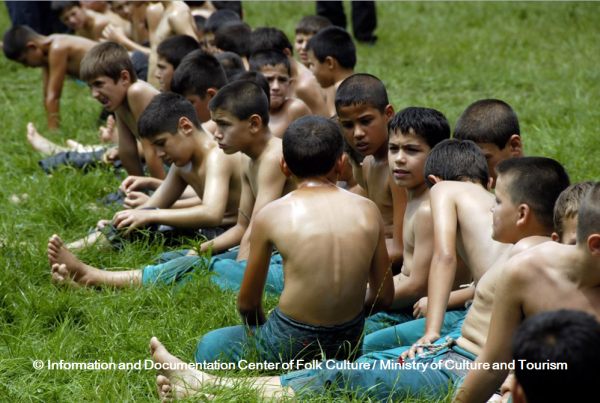Subscribe
Subscribe to our quarterly email newsletter 「ICM News」 to receive recent news about ICM, diverse writings by experts and youth, and relevant information.
Title [ICM's Pick] Turkey, hosts Kırkpınar inscribed as UNESCO Intangible Cultural Heritage

According to UNESCO's Intangible Cultural Heritage thousands of people from different age groups, cultures and regions travel every year to see ''Pehlivan'' (wrestlers) fight for the Kırkpınar Golden Belt and the title of Chief Pehlivan.
Each festival is launched by its patron, the ''Kırkpınar Aga,'' in a ceremony featuring forty bands of ''davul'' drums and ''zurna'' shawms. The golden belt is carried through the city in a procession, followed by prayers recited in the Selimiye Mosque. The wrestling bouts customarily take place at the Men’s Field.
The master of ceremonies introduces the ''Pehlivans'' to the audience, reciting in verse their names, titles and skills. Next, the oil man oils the wrestlers assisted by the towel holder. The wrestlers each wear ''kıspet,'' thick trousers made of water buffalo or cow leather. As the wrestling takes place, the drum and shawm bands play the traditional repertoire of the festival.
Kırkpınar oil wrestling is open to men from all cultures, regions and ages without discrimination between religion, language or race. ''Pehlivans'' are considered exemplary figures in society with attributes such as generosity, honesty, respectfulness and adherence to traditions and customs. All ''Pehlivans'' are trained in the master-apprentice tradition. Inscribed as a UNESCO Intangible Cultural Heritage of Humanity in 2010, more information can be found on UNESCO's Intangible Cultural Heritage official website. |
















